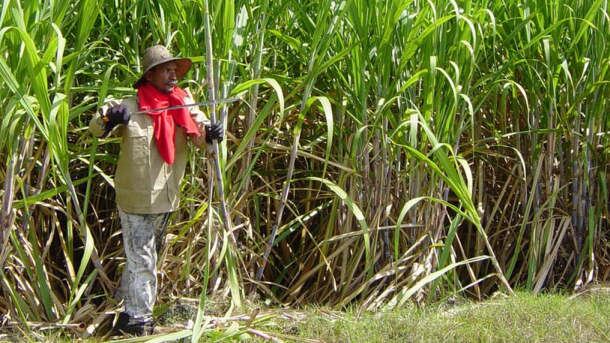The use of the term ‘evaporated cane juice’ (ECJ) to describe a crystalized sugar derived from sugar cane has prompted scores of lawsuits against firms from Chobani to Trader Joe’s in which plaintiffs argue that it’s just a fancy term for sugar and that manufacturers only use it because it sounds healthier and conceals the fact that they are adding sugar to their products.
ECJ manufacturers, however, insist that the term 'evaporated cane juice' accurately reflects what the product is and clearly distinguishes it from regular white refined sugar (although it does have the same number of calories and counts as sugar in the Nutrition Facts panel).
The ECJ saga…
The FDA first weighed in on the issue via draft guidance in 2009 advising firms not to use the term ECJ and urging them to use the term ‘dried cane syrup’ instead. However, food manufacturers said the intervention had caused chaos, and a tsunami of lawsuits, and that consumers don’t understand the term ‘dried cane syrup.’
In a bid to address the confusion, the FDA said in March 2014 that it would revisit its draft guidance, prompting many judges to dismiss ECJ cases without prejudice (which means plaintiffs can re-file) or stay them (put them on ice) until the FDA clarified its position.
Fast forward to May 25, 2016, and the FDA has finally done so, in a document likely to revive all of the lawsuits.
FDA: Term evaporated cane juice is ‘false and misleading’; use ‘sugar’ instead
In finalized guidance released Wednesday, the FDA said the term ‘evaporated cane juice’ is “false and misleading” and advised manufacturers not to use it on food labels. It has also acknowledged that ‘dried cane syrup’ is not a great alternative, and has instead advised companies to simply declare ECJ as ‘sugar.’
“We are advising the regulated industry of our view that the term ‘evaporated cane juice’ is not the common or usual name of any type of sweetener and that this ingredient should instead be declared on food labels as ‘sugar,’ preceded by one or more truthful, non-misleading descriptors if the manufacturer so chooses (eg. ‘cane sugar’).
“The use of ‘juice’ in the name of a product that is essentially sugar is confusingly similar to the more common use of the term ‘juice’.”
It added:“FDA is no longer recommending that this ingredient be labeled as ‘dried cane syrup’.”

"We would expect additional litigation and a flurry of activity in this area. The stays will be lifted on all cases which have been stayed due to the FDA’s consideration of this issue. Those cases will now go forward. There are at least a dozen if not more cases which have been stayed."
David Biderman, partner, Perkins Coie
Legal ramifications
While FDA guidance is not legally binding, many plaintiffs’ attorneys nevertheless seize upon it in consumer class action lawsuits, and the long-awaited guidance is likely to trigger a flurry of activity, David Biderman, a partner at law firm Perkins Coie, told FoodNavigator-USA:
“We would expect additional litigation and a flurry of activity in this area. The stays will be lifted on all cases which have been stayed due to the FDA’s consideration of this issue. Those cases will now go forward.
“There are at least a dozen if not more cases which have been stayed.”

"Guidance is not law... Just because the FDA says it believes 'evaporated cane juice' is false or misleading, that doesn’t make it per se false or misleading... That said, if companies want to avoid the potential for litigation, they would be wise to consider carefully how they want to identify that ingredient on the label and swap 'sugar' for 'juice' to avoid the potential for regulatory action and civil litigation."
Justin Prochnow, shareholder, Greenberg Traurig
Guidance is not law
Justin Prochnow, shareholder at law firm Greenberg Traurig, said that many observers had predicted that the FDA would basically reiterate what it said in 2009 (ie. we don't like the term ECJ), and stressed that guidance is not legally binding.
"Just because the FDA says that it believes the title of 'evaporated cane juice' is false or misleading, that doesn’t make it per se false or misleading. In the same way that plaintiff lawyers shouldn’t have been using the draft guidance as proof that the term is false or misleading, the FDA’s revised and final guidance on the subject should also not be used as proof that the statement is false or misleading."
In reality, however, what the FDA says in such documents does impact civil litigation, he said: "Many courts stayed cases pending the FDA’s revisiting of the guidance, so now that it is final, those cases will presumably be moving forward again.
"While it isn’t proof of violations, such a guidance usually gives plaintiff lawyers some additional courage to bring actions so companies can expect that plaintiff lawyers will be scouring the shelves for products with 'evaporated cane juice' on the labels.
"So, if companies want to avoid the potential for litigation, they would be wise to consider carefully how they want to identify that ingredient on the label and swap 'sugar' for 'juice' to avoid the potential for regulatory action and civil litigation."

"Any manufacturer still using the term 'evaporated cane juice' will be more vulnerable to lawsuits in the wake of FDA’s final guidance. The final guidance is certainly an additional arrow in the quiver of plaintiffs’ counsel.
"But the FDA also indicated in the 'background' section of its announcement that it would not object if manufacturers used stickers to modify their labels prior to their next label printing. If a manufacturer takes advantage of this suggestion, it would be able to assert that as soon as FDA issued final guidance, it immediately modified its label. This, combined with the fact that the previous FDA draft guidance was just that, a draft, would enable a manufacturer to use FDA’s announcement in its defense."
William Dance, attorney, Tucker Ellis LLP

Pierce Gore of Pratt & Associates, who has filed scores of ECJ-related lawsuits, told FoodNavigator-USA in a 2013 interview: "Our kids are swimming in sugar; there’s an epidemic of type two diabetes, and part of the problem is that we’re eating all this sugar without even realizing it because it’s hidden behind terms like ‘evaporated cane juice' ."
GMA: Evaporated cane juice is an acceptable common and usual name for the ingredient
In a 92-page document penned in 2014, the Grocery Manufacturers Association (GMA), Amy’s Kitchen, Chobani, KIND Healthy Snacks and others urged the FDA to “declare evaporated cane juice as the name for the ingredient” and bring an end to the uncertainty.
Evaporated cane juice, argued the GMA, "is a defensible, recognizable and acceptable common and usual name for the ingredient.”
However, other commentators say the term is misleading as it implies that firms merely squeeze out the juice from sugar cane and evaporate it.
In fact, they have to clarify and filter the juice to remove solids, heat it with steam and concentrate it into a syrup; then seed it with tiny sugar crystals and boil it to form a mixture of crystals and molasses. Next it is put in a centrifuge to spin out the molasses. The golden crystals are then dried and packed.
The end product has a darker color than white refined sugar, which goes though some additional steps, but ECJ is still a crystalized sugar, not just evaporated juice, according to Processed Free America.
Speaking to FoodNavigator-USA on Wednesday, Marianne L. Martinez, assistant VP, corporate communications at ECJ supplier Florida Crystals Corporation, said: "We are not yet in a position to fully comment on [the new guidance].However, we can say 'Evaporated Cane Juice' has been the common or usual name for the product for well over 20 years and has been used throughout the food industry on thousands and thousands of product labels."

In a statement submitted to the court in 2014 in a lawsuit over ECJ labels , Michael DeLuca, VP of specialty ingredients at Domino Sugar said: "The plaintiffs say the industry uses ECJ as a euphemism for sugar. This is incorrect...
"During the entire time that it has been on the market... ECJ has been considered entirely distinct from what is commonly known as refined sugar. ECJ has a distinct darker appearance because it is not decolorized, as is refined sugar. ECJ has distinct taste and smell characteristics. Further, ECJ has nutrients and other inherent constituents that do not exist in refined sugar.”
More legal and industry reaction to follow...
Read the FDA's final guidance on ECJ labeling HERE.
